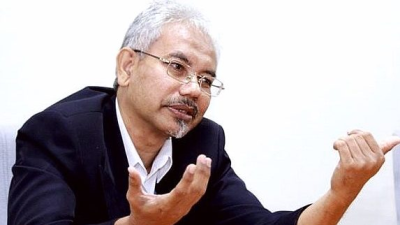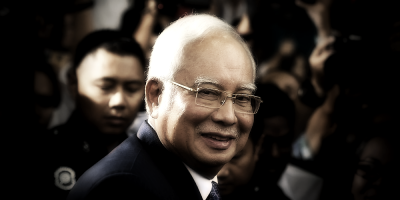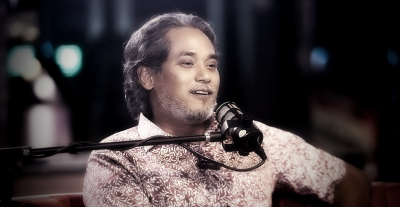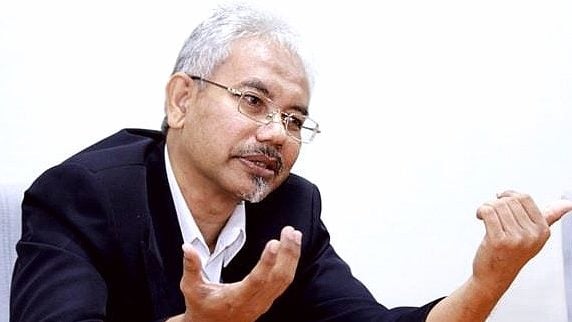
The issue of the use of Imam Nawawi’s 40 Hadiths suggested by the Ministry of Education has drawn flak from various bodies.
I feel sad that this has happened to this country. It was bad enough to discover that one race feels that they own this country and that one people think that their own faith is more worthy than the others, but now there are others who seem to be dictating to Muslims what to do or what not to do within the confines of their own faith and to their own people.
The two acts of not consulting Muslims about the book or even getting the full facts from the MOE make these respected entities to be considered ‘arrogant’ and ‘ignorant’ by many Muslims.
This kind of action does not bode well for a country hurt devastatingly by two ‘bloody’ elections that have caused a fully uncertain future.
In this article, I wish to explain how the compilation of well-chosen Hadiths are important to the spiritual compass of the Muslims and particularly to me personally.
When I began to learn about Islam on my own while studying in the US, I read several defining books on the subject.
You see, most Malays learn the rituals of Islam and recitations of Qur’an from their ustazs in the mosque and knowledge of history, laws and rituals from their public school curriculum and their after-school sekolah agama.
I had none of those elements growing up. I studied the recitation of the Qur’an from my mother but barely understood much of the lessons in history, rituals and laws in school.
When I arrived in the US in 1980, the Islamic Reformation had already begun in that country and some Malay students known as the Malaysian Islamic Study Group or MISG were inviting other Malay students to understand the religion as more than just a cultural Islam but a more social and political one.
I found several books that would later define my idea of Islam. Among the first few books I read were Towards Understanding Islam by Abul a’la’ Maududi, an Indian Muslim reformist who was a religious scholar. His book ‘Fundamentals of Islam’ was also my foundational reading.
I added the radical thoughts of Syed Qutb in his book Milestone and also the book by Dr. Ali Shariati of Man and Islam. These books gave me the conceptual framework of Islam in the modern world, something that most Muslims would never understand as their teachings and learning comes only within the ritualistic and symbolic aspects of worship like solat, pilgrimage, fasting and war or jihad.
There was hardly any teaching on compassion, acceptance of others, the humility of Allah’s Judgement on man, and the fate of any man in his or her own prescribed destiny.
I tried to read and understand the Qur’an but it was very confusing and difficult. When I was introduced to the collection of Sahih Al-Bukhari’s English translation of over 7,000 hadiths, I began to understand Islam from the eyes of the Prophet Muhammad.
The hadiths contained direct actions and statements of the Prophet about values, rituals, history and social interactions.
My personality of Islam began to take shape not framed by Malay ustazs but by the words and deeds of the Prophet himself.
I then discovered commentaries of specially selected hadiths works that also included Imam Nawawi’s 40 Hadiths.
Many Muslims never get to read significant hadiths or many hadiths of the Prophet, and so their personality are framed by their Malay teachers who pick only those statements that would support a racial and nationalistic perspective of ‘us against them’.
When the call to Islamic Reform came to Malaysia, it was led by professionals like Anwar, Shaari, Dzulkifli, Mohamad Sabu and Hassan Ali while the ustaz group was not many, such as Badrul Amin, Hadi Awang and Nik Aziz.
The Islamic Reform that swept the country was popularised by the professionals who were mainly academics in public universities.
What was the primary vision of the Islamic Reform? It was to reset the Malay narrative away from purely nationalistic and racial discourse into one that has a wider set of universalistic values with other civilisations.
The Islamic Reform was to take the Malays into a global seat of modernisation based on a value system that does not put human greed and frailty as its main reference.
The present Madani concept of Islam was that Utopian construct, but most Malays in the present are still trapped in the ritualistic and ‘right wing political’ idea of Islam.
The education of Muslims in the madrasah, tahfizs and public religious schools are parochial in instruction and does not contain a strong foundation of civilisational values of humanity.
One of the works that can start this off in the right direction is the understanding of Imam Nawawi’s 40 Hadiths.
Without this framework of values, Islam becomes a tribal force of animosity and intolerance towards others.
I am what I am today from my readings and one of my favourite books was, and is, Imam Nawawi’s 40 Hadiths.
It seems very strange that entities such as the KLSCAH and the Interfaith Body are challenging something that would rebuild the foundation of Muslims towards a more accepting society.
It seems that the two bodies are against anything ‘Islamic’ if the public education system is involved even though this may be trying to redevelop the Malay society to be a more just, accepting and humble people that would subscribe to the higher idea of nation-building and global coexistence.
It would be strange for the MOE to ‘seek permission’ from anyone, but the onus is supposed to be on the part of the two NGO bodies to invite the MOE for a dialogue and discourse.
Just because the cabinet has given the green light, there is nothing in this world that has the certainty of implementation.
If the MOE were cordially invited to provide an explanation, there would not have been any ill feeling within the Muslim community of non-Muslims seemingly ‘dictating’ their religion and also fears of non-Muslims for an overemphasis of religion threatening their children’s future.
What a sad time for Malaysia this coming Merdeka. A nation of citizens in mistrust and intolerance without dignity of discussion and civilised dialogue but accusations galore.
Sometimes I think we really deserve the country we got because of our inconsiderate actions and attitudes towards our own people.
Whither our sense of worth and honour with one another…I wonder?
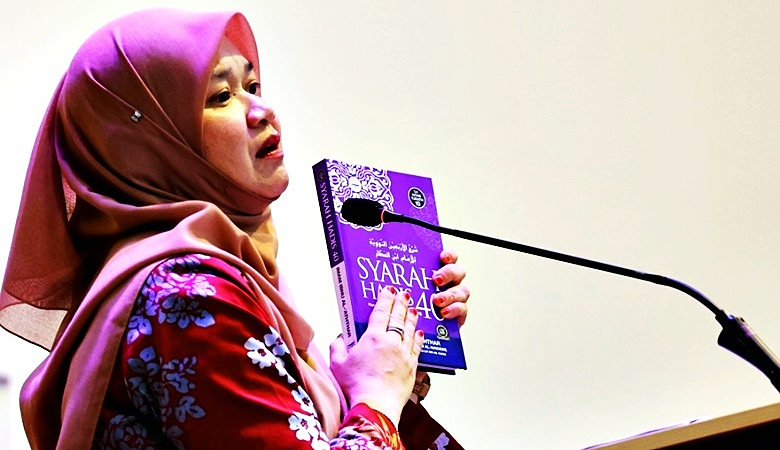
(Prof Dr. Mohd Tajuddin Mohd Rasdi is Professor of Architecture at a local university and his writing reflects his own personal opinion entirely.)
ADVERTISEMENT
ADVERTISEMENT






